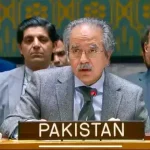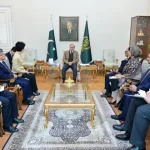For any private company, the role of the CEO is very crucial for the success and implementation of different plans and objectives. The same is true about the role of the Economic managers in case of any country’s economy. The objective of any CEO of the company is to maximize its profits with a minimum input of concerned resources. In order to achieve this goal, the chief executive officer makes sure that the lethal and effective business tools must be put in place to beat all of its competitors in the market. This is not the case when a country’s economic policies are developed and/or implemented. The economic management of any country is actually a very delicate task. When it comes to the developing economies like that of Pakistan the task of economic management becomes very daunting and troublesome. This is where the current economic team is confused about the economic policies of the country.
As time passes and winter is approaching across the country, the newly formed government in Pakistan is finding herself in the midst of the boiling water. It is a hot heated debate that the new government is under the fire just because of the bad governance and improper economic management for past couple of decades. The current scenario of blaming every bad thing in the past government’s account is not the right stroke to play. The current economic situation had always been very vivid to every stakeholder involved both nationally and internationally. It is actually hilarious to note that the same bad economic conditions and poor governing style of the previous governments had been very wholehearted used by the current ruling party to grab public attention during the election campaign but now the same has become the curse for the new government.
The ruling party was quick enough to nominate its economic manager for the country even before the announcement of election dates last year. The repeated press briefing of the current economic manager as an opposition member in the last couple of years and his continuous promises of being the ultimate savior of the sinking ship of the country’s economy gave us all high hopes of the golden future of Pakistan. The newly elected prime minister promises the nation that the economic conditions of the country will be improved in a year or two so that people from the west would search for jobs in Pakistan. This gives people skyrocketed expectations that finally a team of competent rulers has come for the long due rescue of the country. These all assurance by the newly formed government show that they at least have some concrete and effective plan for the well being of the people.
The economic policies of the developing economy like Pakistan are primarily articulated around the mix of market and closed economy. Governments usually decide to provide basic subsidies to the core sectors of the economy. In the case of Pakistan, the agriculture sector must be given subsidies and privileges since it employs more than 65 percent of the total workforce of the country. Similarly, agricultural industries must also be given high priorities in favorable policies. Information Technology is being considered as the future of the world should also be given incentives and tax-free environment under which it can flourish and compete at international levels.
The economic managers can formulate such policies under which it can discourage import of finished consumer goods and to help the local industries to produce the same for the local market and improve the quality of these products to compete in international markets. These above-mentioned policies not only improve the local employment rates and purchasing power parity but diminish the widen trade deficit of Pakistan which is consistently hunting the country’s economy for over a decade now.
The focus should also be given to ink those MoUs with friendly nations under which the transfer of technologies and expertise be taken place in Pakistan at the local level. This not only improves the local manufacturing technology and system in Pakistan but in the long run the local manufacturers would be able to produce competitive finished goods at a global level. Currently, Pakistan is not being able to fully manufacture many finished goods locally including Automobiles, Urea, Petrochemicals, Home appliances, Electronic, and Electric goods etc.
These last 3 months are not showing any good sign of future outlay of the country’s economy. The surge in the basic utilities in short time (including domestic and industrial gas, consumer and industrial fuels among many), the consistent twist and turn policies without realizing the ultimate impacts on masses, and turning the begging bowl in front of every friendly nation for new loans, deferred loan & interest payments and credit imports only make things spine-chilling in near future for the same government. There doesn’t seem to be an effective economic policy currently available. The whole paradigm of the Governmental structure is based on the campaign of anti-corruption and money laundering. The cases of anti-corruption and money laundering are going at snail’s pace and the Government doesn’t have many years to wait for the cases to conclude and produce wonders for the country.
The nation’s total external debt has already exceeded $95 billion and the total external debt servicing of the country is approaching $ 31 billion by the end of 2020-2022. Now is the time the current economic managers must use the given resources effectively and plan an economic policy that is not only helpful for the underprivileged segments of the masses but also develops future prospects of the youths of the nation.







